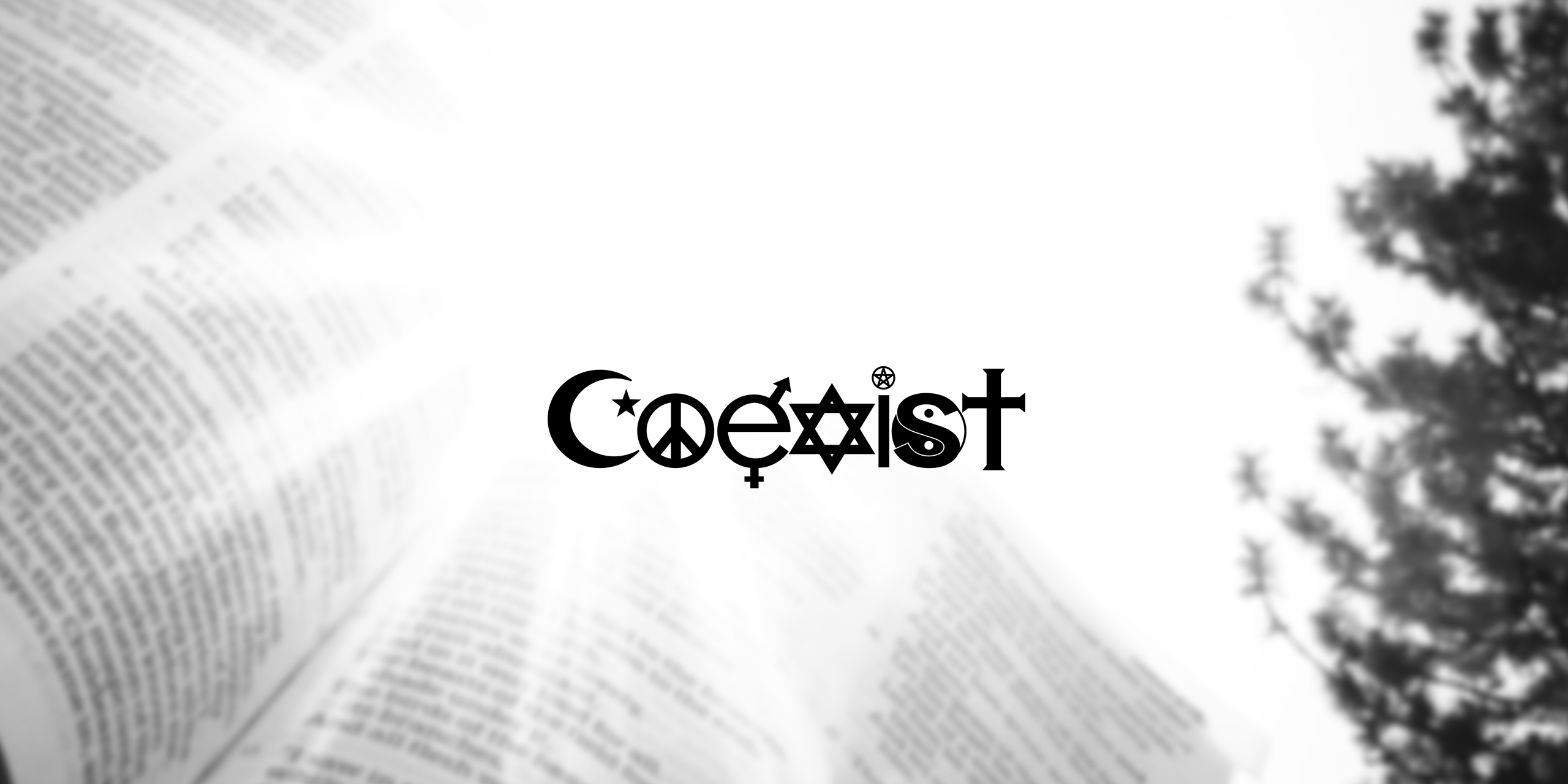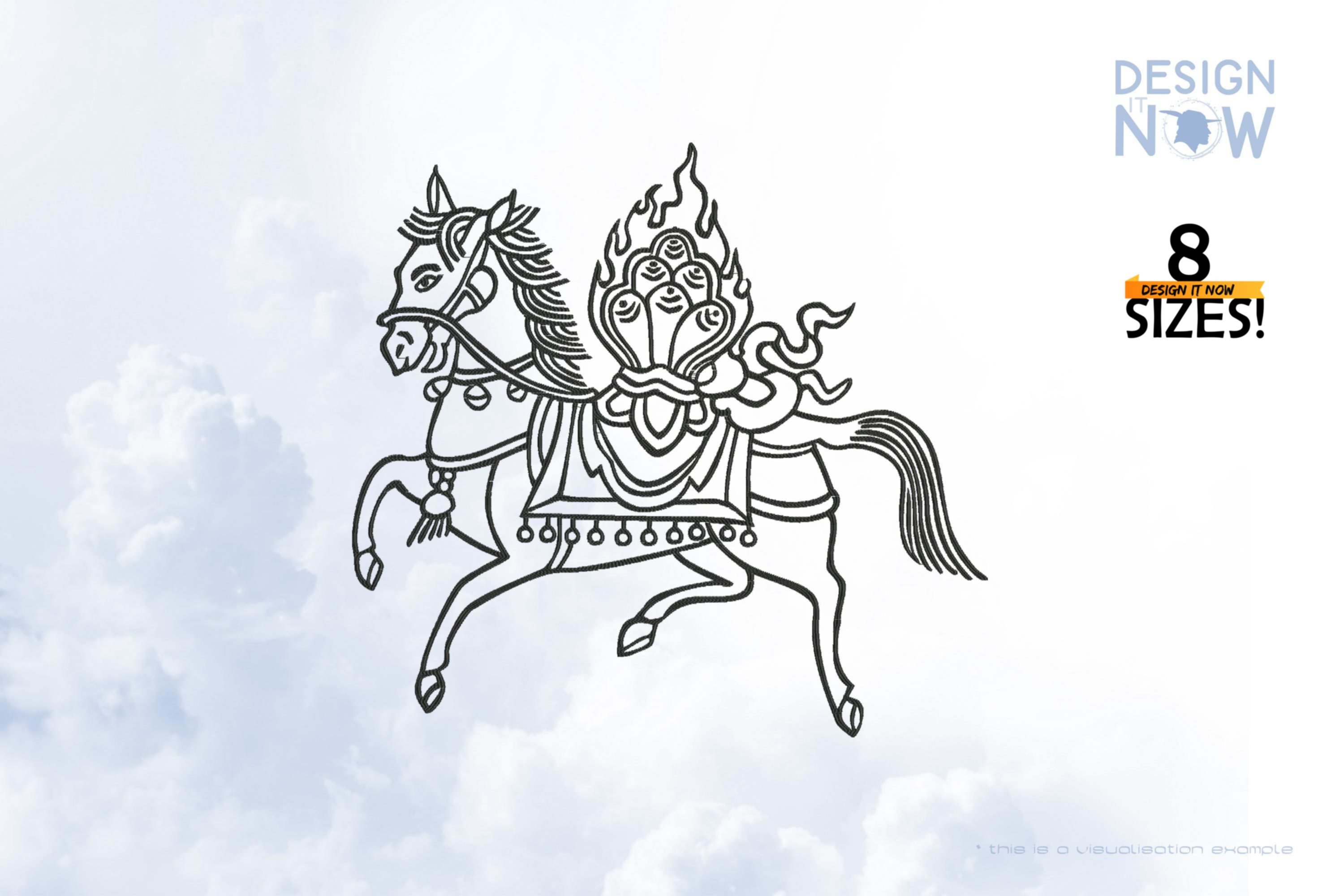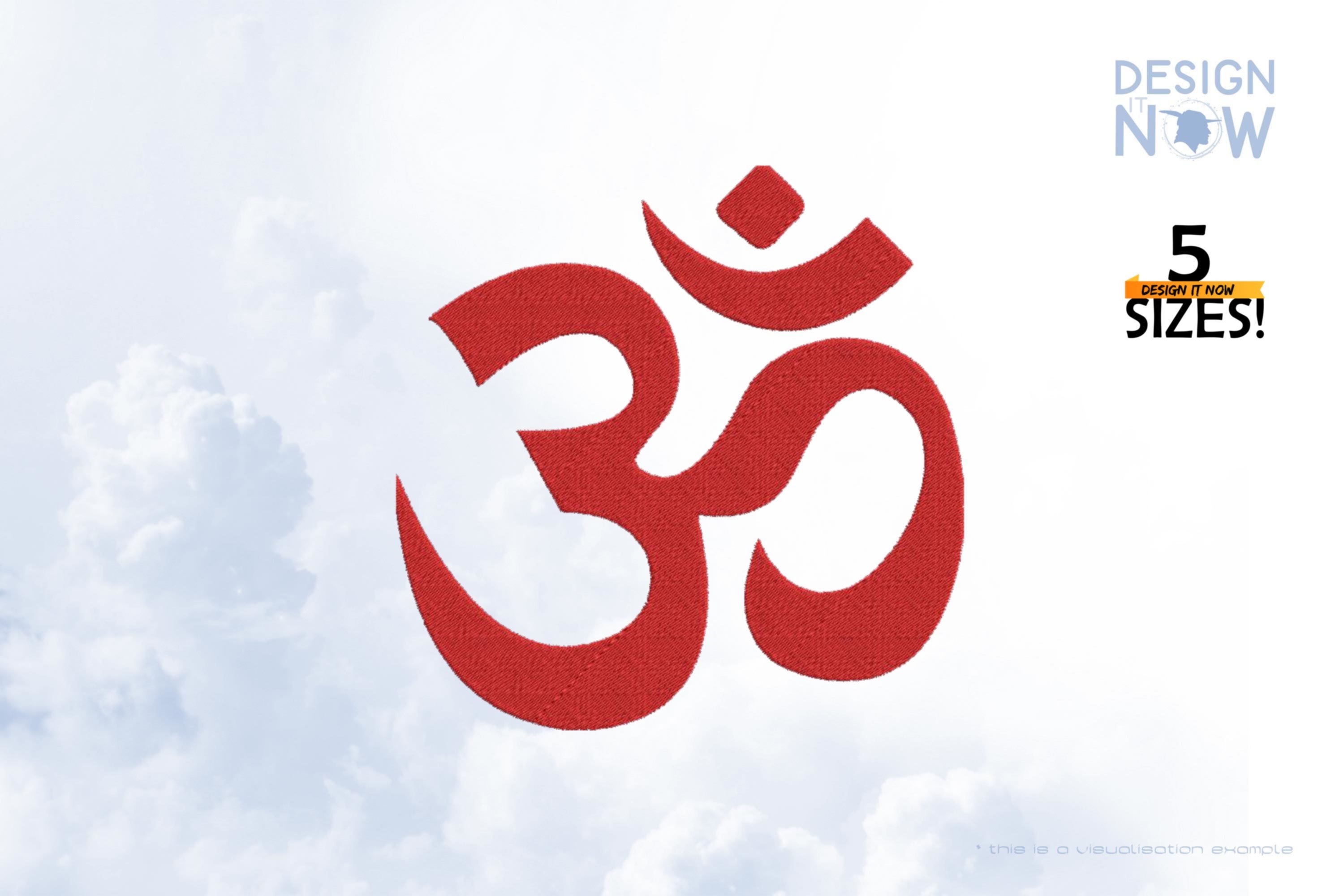
Religion
There is no universally accepted definition of religion, only various attempts at definition. Roughly, substantialist and functionalist approaches can be distinguished. Substantialist definitions try to determine the essence of religion, for example, in its relation to the sacred, the transcendent or the absolute; according to Rüdiger Vaas and Scott Atran, for example, the relation to the transcendent represents the central difference to the non-religious.
Functionalist concepts of religion attempt to define religion on the basis of its community-creating social role. In many cases, the definition is made from the perspective of a particular religion, for example, Christianity. One of the most famous and often quoted definitions of religion comes from Friedrich Schleiermacher and reads: Religion is "the feeling of the schlechthinnige dependence on God". The definition from the point of view of a Jesuit is: "Worship of spiritual personal beings, standing apart from and above the visible world, on whom one believes oneself to be dependent and whom one somehow seeks to tune favorably."
A substantialist definition, for example, according to the Protestant theologian Gustav Mensching, reads: "Religion is an experiential encounter with the sacred and a responding action of the human being determined by the sacred. "According to the religious scholar Peter Antes, religion is understood to mean "all ideas, attitudes and actions toward that reality which people accept and name as powers or might, as spirits or also demons, as gods or God, as the sacred or absolute, or finally also only as transcendence."
Michael Bergunder divides the term into Religion 1 and Religion 2. Religion 1 can be understood as the attempts of religious studies to define the term precisely. Religion 2, on the other hand, refers to the everyday understanding of religion. However, there are interactions between these two definitions, so that a clear distinction cannot be made. Bergunder historicizes the concept of religion and therefore criticizes it at the same time. Thus, there is a difference in the understanding of religion on the meta-level (true philosophically) and in the experience (anthropologically)
%
Lungta Wind Horse
Lungta, also known as the "wind horse", is a Tibetan mythical creature that is deeply rooted in Tibetan culture and symbolism.Product Number: N07556Product Name: LungtaThis design comes with the following sizes:Size: 8.93"(w) X 8.35"(h) (226.8mm X 212.2mm) Size: 9.76"(w) X 9.13"(h) (247.8mm X 231.8mm) Size: 10.35"(w) X 9.69"(h) (262.8mm X 246.0mm) Size: 10.62"(w) X 9.94"(h) (269.8mm X 252.4mm) Size: 11.61"(w) X 10.86"(h) (294.8mm X 275.8mm) Size: 11.80"(w) X 11.05"(h) (299.8mm X 280.6mm) Size: 12.63"(w) X 11.82"(h) (320.8mm X 300.2mm) Size: 13.77"(w) X 12.89"(h) (349.8mm X 327.4mm)The following formats are included in the file you will receive: .DST .EXP .JEF .PES .VP3 .XXX .PEC .U01You MUST have an embroidery machine and the software needed to transfer it from your computer to the machine to use this file. This listing is for the machine file only - not a finished item. Lungta Wind Horse Machine Embroidery Design, Tibetan Mythical Creature Embroidery Pattern, Embroidery Art, DIY Project Ideas, Beautiful Digital Supplies For Embroidery Machines
US$1.10* US$4.40* (75% saved)
%
Christmas Joy
Christmas, also called Christmastime called the Feast of Christmas or the Feast of the Holy Christ, is the feast of the birth of Jesus Christ in Christianity. The feast day is December 25, Christmas Day, also known as the Solemnity of the Nativity of the Lord (Latin: Sollemnitas in nativitate Domini), the celebrations of which begin on the evening before Christmas Eve (also Christmas Eve, Christmas Night, Chrismastime). December 25 is a public holiday in many states. In Germany, Austria, the Netherlands, Switzerland and many other countries, December 26 is added as a second Christmas holiday, which is also celebrated as St. Stephen's Day.Christmas is usually celebrated with family or friends and with giving gifts to each other. In German-speaking and some other countries, gifts are usually given in the evening on December 24 and are considered the most prominent part of the Christmas celebration. In English-speaking countries, gifts are usually given on the morning of Christmas Day. The gift-giving ritual refers to mythical gift-bringers such as the Christ Child or Santa Claus, some of whom are also played. Such rites, like the festival as a whole, serve to strengthen family relationships. Many countries associate other customs of their own with Christmas. Attending a church service on Christmas Eve, the night or morning of December 25 is part of the festive tradition for many people.In Western Christianity, Christmas is one of the three main festivals of the church year, along with Easter and Pentecost. As a church holiday, December 25 is documented since 336 in Rome. It is not clear how this date came about.Emperor Aurelian had set December 25, 274, as an empire-wide feast day for the Roman sun god Sol Invictus; early Christians drew parallels between this sun god and "Christ, the true sun" (Christus verus Sol). The custom of giving presents to children at Christmas in the way that is customary today dates back to the Biedermeier period and was initially restricted to upper middle-class circles, because only they had the living room, which was used like a stage, at their disposal, could afford a private Christmas tree, and could choose children's gifts from the increasingly diverse assortment of toys. Product Number: N01064Product Name: Christmas_JoyThis design comes with the following sizes:Size: 3.86"(w) X 3.19"(h) (98.0 X 80.9mm)The following formats are included in the file you will receive: .DST .EXP .JEF .PES .VP3 .XXX .VIP .HUSYou MUST have an embroidery machine and the software needed to transfer it from your computer to the machine to use this file. This listing is for the machine file only - not a finished item.Christmas Machine Embroidery Design, Xmas Embroidery Pattern, Christmas Eve Designs, Holiday Embroidery Art, Feast Of Christmas, DIY Project Idea, Unique Digital Supplies For Embroidery Machines
US$1.10* US$4.40* (75% saved)
%
Santa Claus Sleigh Ho Ho Ho
Santa Claus is a symbolic figure of Christmas gift-giving that is popular in Germany, especially in northern, central and eastern Germany, and in the rest of the world, especially in Protestant regions such as French-speaking western Switzerland (Père Noël), the Netherlands, Scandinavia, Estonia, Latvia, the United Kingdom, Australia, Canada and the United States. He is depicted as a roundish, friendly old man with a long white beard, red robe trimmed with white fur; attributes are his gift bag and (in former times also) a rod. Contemporary postcards prove that this depiction already existed in the 19th century. The Coca-Cola Company used this depiction for its own advertising campaigns every year at Christmas time, starting in 1931.Supposedly, Santa Claus brings gifts to good children on Christmas Eve, but only a rod to naughty ones. He thus combines characteristics of the holy bishop Nicholas of Myra and his companion, the servant Ruprecht. The figure of Santa Claus is mainly based on the European legends about Saint Nicholas; however, he is by no means to be equated with him. Nicholas of Myra was a bishop in the 4th century, around whom numerous legends entwine. Already in the Middle Ages, children were given presents on the commemoration day of St. Nicholas, December 6, often the evening before. In the past, this date was also the day on which presents were given, but it was only during the Reformation and as a result of its rejection of the veneration of saints that it was placed on Christmas Day in many countries.European emigrants brought the Saint Nicholas custom with them to the United States of America. In particular, the Dutch colonies celebrated Sinterklaasfeest, especially since Saint Nicholas was also the patron saint of Nieuw Amsterdam, which later became New York. The Dutch Sint Nicolaas or Sinterklaas became the English Saint Nicholas or Santa Claus. Today's popular myth of Santa Claus traveling in a flying sleigh pulled by reindeer, entering homes at night through the chimney and distributing gifts, dates back to the poem The Night before Christmas, published anonymously in 1823.Product Number: N01071Product Name: Ho_Ho_HoThis design comes with the following sizes: Size: 3.89"(w) X 2.57"(h) (98.8 X 65.4mm)The following formats are included in the file you will receive: .DST .EXP .JEF .PES .VP3 .XXX .VIP .HUSYou MUST have an embroidery machine and the software needed to transfer it from your computer to the machine to use this file. This listing is for the machine file only - not a finished item.Santa Claus Sleigh Ho Ho Ho Machine Embroidery Design, Symbolic Figure Of Christmas Day Embroidery Pattern, Holidays Designs, Santa With Long White Beard Embroidery Art, DIY Project Idea, Unique Digital Supplies For Embroidery Machines
US$1.10* US$4.40* (75% saved)
%
Merry Christmas Saying
Christmas, also called Christmastime called the Feast of Christmas or the Feast of the Holy Christ, is the feast of the birth of Jesus Christ in Christianity. The feast day is December 25, Christmas Day, also known as the Solemnity of the Nativity of the Lord (Latin: Sollemnitas in nativitate Domini), the celebrations of which begin on the evening before Christmas Eve (also Christmas Eve, Christmas Night, Chrismastime). December 25 is a public holiday in many states. In Germany, Austria, the Netherlands, Switzerland and many other countries, December 26 is added as a second Christmas holiday, which is also celebrated as St. Stephen's Day.Christmas is usually celebrated with family or friends and with giving gifts to each other. In German-speaking and some other countries, gifts are usually given in the evening on December 24 and are considered the most prominent part of the Christmas celebration. In English-speaking countries, gifts are usually given on the morning of Christmas Day. The gift-giving ritual refers to mythical gift-bringers such as the Christ Child or Santa Claus, some of whom are also played. Such rites, like the festival as a whole, serve to strengthen family relationships. Many countries associate other customs of their own with Christmas. Attending a church service on Christmas Eve, the night or morning of December 25 is part of the festive tradition for many people.In Western Christianity, Christmas is one of the three main festivals of the church year, along with Easter and Pentecost. As a church holiday, December 25 is documented since 336 in Rome. It is not clear how this date came about.Emperor Aurelian had set December 25, 274, as an empire-wide feast day for the Roman sun god Sol Invictus; early Christians drew parallels between this sun god and "Christ, the true sun" (Christus verus Sol). The custom of giving presents to children at Christmas in the way that is customary today dates back to the Biedermeier period and was initially restricted to upper middle-class circles, because only they had the living room, which was used like a stage, at their disposal, could afford a private Christmas tree, and could choose children's gifts from the increasingly diverse assortment of toys. Product Number: E00440Product Name: merryThis design comes with the following sizes:Size: 1.39"(w) X 0.79"(h) (35.3 X 20.1mm) Size: 2.08"(w) X 1.19"(h) (52.8 X 30.3mm) Size: 2.77"(w) X 1.59"(h) (70.3 X 40.3mm) Size: 3.46"(w) X 1.98"(h) (87.8 X 50.3mm) Size: 4.15"(w) X 2.37"(h) (105.3 X 60.3mm) Size: 4.83"(w) X 2.76"(h) (122.7 X 70.2mm) Size: 5.52"(w) X 3.16"(h) (140.3 X 80.2mm) Size: 6.21"(w) X 3.56"(h) (157.7 X 90.3mm) Size: 6.90"(w) X 3.94"(h) (175.3 X 100.2mm) Size: 7.59"(w) X 4.34"(h) (192.7 X 110.2mm) Size: 8.82"(w) X 5.04"(h) (224.1 X 128.1mm)The following formats are included in the file you will receive: .DST .EXP .JEF .PES .VP3 .XXX .VIP .HUSYou MUST have an embroidery machine and the software needed to transfer it from your computer to the machine to use this file. This listing is for the machine file only - not a finished item.Merry Christmas Saying Machine Embroidery Design, Xmas Embroidery Pattern, Christmas Eve Designs, Holiday Embroidery Art, Feast Of Christmas, DIY Project Idea, Unique Digital Supplies For Embroidery Machines
US$1.10* US$4.40* (75% saved)
%
Om Aum Sign
Om (also Aum) is a sacred syllable considered holy by Hindus, Jainas and Buddhists. It is the most comprehensive and sublime symbol of Hindu metaphysics and was first used in the Upanishads. The sound stands for the transcendent primordial sound, from whose vibrations, according to Hindu understanding, the entire universe originated. It denotes the highest conception of God, the formless Brahman, the impersonal world soul. This comprises the realm of the visible appearances and the realm of the transcendent. Product Number: N03865Product Name: OmThis design comes with the following sizes:Size: 3.95"(w) X 3.93"(h) (100.3 X 99.8mm) Size: 4.74"(w) X 4.71"(h) (120.3 X 119.6mm) Size: 5.52"(w) X 5.49"(h) (140.3 X 139.4mm) Size: 6.70"(w) X 6.67"(h) (170.3 X 169.4mm) Size: 7.85"(w) X 7.80"(h) (199.3 X 198.2mm)The following formats are included in the file you will receive: .DST .EXP .JEF .PES .VP3 .XXX .VIP .HUSYou MUST have an embroidery machine and the software needed to transfer it from your computer to the machine to use this file. This listing is for the machine file only - not a finished item.Om Aum Sign Machine Embroidery Design, Symbols Embroidery Pattern, Embroidery Art, DIY Project Ideas, Beautiful Digital Supplies For Embroidery Machines
US$1.10* US$4.40* (75% saved)
%
Wedding Rings
A wedding is a solemn ceremony where two people publicly declare their love and commitment to each other and tie the knot. It is a significant event in many people's lives and is often shared with family, friends and loved ones. Weddings can involve different traditions and rituals in different cultures and religions, such as exchanging vows, exchanging rings, lighting a wedding candle or signing a marriage certificate. Celebrations can vary according to the couple's preferences and traditions and often include food, music, dancing and other festive activities. A wedding symbolises the union of two people and the beginning of a life together.Product Number: N03205Product Name: MerryMeThis design comes with the following sizes:Size: 3.19"(w) X 3.92"(h) (81.0 X 99.5mm) Size: 3.85"(w) X 4.71"(h) (97.9 X 119.6mm) Size: 4.49"(w) X 5.49"(h) (114.0 X 139.5mm) Size: 5.44"(w) X 6.67"(h) (138.1 X 169.5mm)The following formats are included in the file you will receive: .DST .EXP .JEF .PES .VP3 .XXX .VIP .HUSYou MUST have an embroidery machine and the software needed to transfer it from your computer to the machine to use this file. This listing is for the machine file only - not a finished item.Wedding Rings Machine Embroidery Design, Marriage Couple Embroidery Pattern, Celebration Embroidery Art, DIY Project Ideas, Beautiful Digital Supplies For Embroidery Machines
US$1.10* US$4.40* (75% saved)
%
Hunab Ku Mayan Culture Symbol
Hunab Ku is a term used in Mayan culture to refer to the supreme god or the only god. The word "Hunab Ku" means "The One God" in the Yucatecan Mayan language. Product Number: N04081Product Name: MayaIconThis design comes with the following sizes:Size: 3.90"(w) X 3.93"(h) (99.0 X 99.8mm) Size: 4.65"(w) X 4.72"(h) (118.0 X 120.0mm) Size: 5.44"(w) X 5.50"(h) (138.1 X 139.8mm) Size: 6.61"(w) X 6.69"(h) (168.0 X 170.0mm) Size: 7.80"(w) X 7.86"(h) (198.2 X 199.6mm) The following formats are included in the file you will receive: .DST .EXP .JEF .PES .VP3 .XXX .VIP .HUSYou MUST have an embroidery machine and the software needed to transfer it from your computer to the machine to use this file. This listing is for the machine file only - not a finished item.Hunab Ku Mayan Culture Symbol Machine Embroidery Design, Maya Embroidery Pattern, The One God Embroidery Art, DIY Project Ideas, Beautiful Digital Supplies For Embroidery Machines
US$1.10* US$4.40* (75% saved)
%
Santa Claus Boot
Santa Claus is a symbolic figure of Christmas gift-giving that is popular in Germany, especially in northern, central and eastern Germany, and in the rest of the world, especially in Protestant regions such as French-speaking western Switzerland (Père Noël), the Netherlands, Scandinavia, Estonia, Latvia, the United Kingdom, Australia, Canada and the United States. He is depicted as a roundish, friendly old man with a long white beard, red robe trimmed with white fur; attributes are his gift bag and (in former times also) a rod. Contemporary postcards prove that this depiction already existed in the 19th century. The Coca-Cola Company used this depiction for its own advertising campaigns every year at Christmas time, starting in 1931.Supposedly, Santa Claus brings gifts to good children on Christmas Eve, but only a rod to naughty ones. He thus combines characteristics of the holy bishop Nicholas of Myra and his companion, the servant Ruprecht. The figure of Santa Claus is mainly based on the European legends about Saint Nicholas; however, he is by no means to be equated with him. Nicholas of Myra was a bishop in the 4th century, around whom numerous legends entwine. Already in the Middle Ages, children were given presents on the commemoration day of St. Nicholas, December 6, often the evening before. In the past, this date was also the day on which presents were given, but it was only during the Reformation and as a result of its rejection of the veneration of saints that it was placed on Christmas Day in many countries.European emigrants brought the Saint Nicholas custom with them to the United States of America. In particular, the Dutch colonies celebrated Sinterklaasfeest, especially since Saint Nicholas was also the patron saint of Nieuw Amsterdam, which later became New York. The Dutch Sint Nicolaas or Sinterklaas became the English Saint Nicholas or Santa Claus. Today's popular myth of Santa Claus traveling in a flying sleigh pulled by reindeer, entering homes at night through the chimney and distributing gifts, dates back to the poem The Night before Christmas, published anonymously in 1823.Product Number: E00086Product Name: SantaThis design comes with the following sizes:Size: 2.88"(w) X 3.90"(h) (73.2 X 99.0mm) Size: 4.74"(w) X 6.41"(h) (120.4 X 162.9mm) Size: 5.83"(w) X 7.90"(h) (148.2 X 200.6mm)The following formats are included in the file you will receive: .DST .EXP .JEF .PES .VP3 .XXX .VIP .HUSYou MUST have an embroidery machine and the software needed to transfer it from your computer to the machine to use this file. This listing is for the machine file only - not a finished item.Santa Claus Boot Machine Embroidery Design, Symbolic Figure Of Christmas Day Embroidery Pattern, Holidays Designs, Santa With Long White Beard Embroidery Art, DIY Project Idea, Unique Digital Supplies For Embroidery Machines
US$1.10* US$4.40* (75% saved)
%
Santa Claus Christmas Holiday Time
Santa Claus is a symbolic figure of Christmas gift-giving that is popular in Germany, especially in northern, central and eastern Germany, and in the rest of the world, especially in Protestant regions such as French-speaking western Switzerland (Père Noël), the Netherlands, Scandinavia, Estonia, Latvia, the United Kingdom, Australia, Canada and the United States. He is depicted as a roundish, friendly old man with a long white beard, red robe trimmed with white fur; attributes are his gift bag and (in former times also) a rod. Contemporary postcards prove that this depiction already existed in the 19th century. The Coca-Cola Company used this depiction for its own advertising campaigns every year at Christmas time, starting in 1931.Supposedly, Santa Claus brings gifts to good children on Christmas Eve, but only a rod to naughty ones. He thus combines characteristics of the holy bishop Nicholas of Myra and his companion, the servant Ruprecht. The figure of Santa Claus is mainly based on the European legends about Saint Nicholas; however, he is by no means to be equated with him. Nicholas of Myra was a bishop in the 4th century, around whom numerous legends entwine. Already in the Middle Ages, children were given presents on the commemoration day of St. Nicholas, December 6, often the evening before. In the past, this date was also the day on which presents were given, but it was only during the Reformation and as a result of its rejection of the veneration of saints that it was placed on Christmas Day in many countries.European emigrants brought the Saint Nicholas custom with them to the United States of America. In particular, the Dutch colonies celebrated Sinterklaasfeest, especially since Saint Nicholas was also the patron saint of Nieuw Amsterdam, which later became New York. The Dutch Sint Nicolaas or Sinterklaas became the English Saint Nicholas or Santa Claus. Today's popular myth of Santa Claus traveling in a flying sleigh pulled by reindeer, entering homes at night through the chimney and distributing gifts, dates back to the poem The Night before Christmas, published anonymously in 1823.Product Number: E00087Product Name: SantaThis design comes with the following sizes:Size: 3.04"(w) X 3.91"(h) (77.2 X 99.2mm) Size: 4.89"(w) X 6.29"(h) (124.3 X 159.8mm) Size: 6.02"(w) X 7.74"(h) (153.0 X 196.6mm) The following formats are included in the file you will receive: .DST .EXP .JEF .PES .VP3 .XXX .VIP .HUSYou MUST have an embroidery machine and the software needed to transfer it from your computer to the machine to use this file. This listing is for the machine file only - not a finished item.Santa Claus Silhouette Machine Embroidery Design, Symbolic Figure Of Christmas Day Embroidery Pattern, Holidays Designs, Santa With Long White Beard Embroidery Art, DIY Project Idea, Unique Digital Supplies For Embroidery Machines
US$1.10* US$4.40* (75% saved)
%
Merry Xmas
Christmas, also called Christmastime called the Feast of Christmas or the Feast of the Holy Christ, is the feast of the birth of Jesus Christ in Christianity. The feast day is December 25, Christmas Day, also known as the Solemnity of the Nativity of the Lord (Latin: Sollemnitas in nativitate Domini), the celebrations of which begin on the evening before Christmas Eve (also Christmas Eve, Christmas Night, Chrismastime). December 25 is a public holiday in many states. In Germany, Austria, the Netherlands, Switzerland and many other countries, December 26 is added as a second Christmas holiday, which is also celebrated as St. Stephen's Day.Christmas is usually celebrated with family or friends and with giving gifts to each other. In German-speaking and some other countries, gifts are usually given in the evening on December 24 and are considered the most prominent part of the Christmas celebration. In English-speaking countries, gifts are usually given on the morning of Christmas Day. The gift-giving ritual refers to mythical gift-bringers such as the Christ Child or Santa Claus, some of whom are also played. Such rites, like the festival as a whole, serve to strengthen family relationships. Many countries associate other customs of their own with Christmas. Attending a church service on Christmas Eve, the night or morning of December 25 is part of the festive tradition for many people.In Western Christianity, Christmas is one of the three main festivals of the church year, along with Easter and Pentecost. As a church holiday, December 25 is documented since 336 in Rome. It is not clear how this date came about.Emperor Aurelian had set December 25, 274, as an empire-wide feast day for the Roman sun god Sol Invictus; early Christians drew parallels between this sun god and "Christ, the true sun" (Christus verus Sol). The custom of giving presents to children at Christmas in the way that is customary today dates back to the Biedermeier period and was initially restricted to upper middle-class circles, because only they had the living room, which was used like a stage, at their disposal, could afford a private Christmas tree, and could choose children's gifts from the increasingly diverse assortment of toys. Product Number: E00078Product Name: XmasThis design comes with the following sizes:Size: 7.08"(w) X 2.24"(h) (179.8 X 56.9mm) Size: 5.90"(w) X 1.87"(h) (149.9 X 47.4mm) Size: 10.22"(w) X 3.23"(h) (259.7 X 82.1mm)The following formats are included in the file you will receive: .DST .EXP .JEF .PES .VP3 .XXX .VIP .HUSYou MUST have an embroidery machine and the software needed to transfer it from your computer to the machine to use this file. This listing is for the machine file only - not a finished item.Merry Xmas Christmas Machine Embroidery Design, Xmas Embroidery Pattern, Christmas Eve Designs, Holiday Embroidery Art, Feast Of Christmas, DIY Project Idea, Unique Digital Supplies For Embroidery Machines
US$1.10* US$4.40* (75% saved)
%
Merry Christmas Head Deer
Christmas, also called Christmastime called the Feast of Christmas or the Feast of the Holy Christ, is the feast of the birth of Jesus Christ in Christianity. The feast day is December 25, Christmas Day, also known as the Solemnity of the Nativity of the Lord (Latin: Sollemnitas in nativitate Domini), the celebrations of which begin on the evening before Christmas Eve (also Christmas Eve, Christmas Night, Chrismastime). December 25 is a public holiday in many states. In Germany, Austria, the Netherlands, Switzerland and many other countries, December 26 is added as a second Christmas holiday, which is also celebrated as St. Stephen's Day.Christmas is usually celebrated with family or friends and with giving gifts to each other. In German-speaking and some other countries, gifts are usually given in the evening on December 24 and are considered the most prominent part of the Christmas celebration. In English-speaking countries, gifts are usually given on the morning of Christmas Day. The gift-giving ritual refers to mythical gift-bringers such as the Christ Child or Santa Claus, some of whom are also played. Such rites, like the festival as a whole, serve to strengthen family relationships. Many countries associate other customs of their own with Christmas. Attending a church service on Christmas Eve, the night or morning of December 25 is part of the festive tradition for many people.In Western Christianity, Christmas is one of the three main festivals of the church year, along with Easter and Pentecost. As a church holiday, December 25 is documented since 336 in Rome. It is not clear how this date came about.Emperor Aurelian had set December 25, 274, as an empire-wide feast day for the Roman sun god Sol Invictus; early Christians drew parallels between this sun god and "Christ, the true sun" (Christus verus Sol). The custom of giving presents to children at Christmas in the way that is customary today dates back to the Biedermeier period and was initially restricted to upper middle-class circles, because only they had the living room, which was used like a stage, at their disposal, could afford a private Christmas tree, and could choose children's gifts from the increasingly diverse assortment of toys. Product Number: E00080Product Name: ChristmasThis design comes with the following sizes:Size: 4.65"(w) X 3.84"(h) (118.1 X 97.5mm) Size: 5.79"(w) X 4.78"(h) (147.1 X 121.4mm)The following formats are included in the file you will receive: .DST .EXP .JEF .PES .VP3 .XXX .VIP .HUSYou MUST have an embroidery machine and the software needed to transfer it from your computer to the machine to use this file. This listing is for the machine file only - not a finished item.Merry Christmas Head Deer Machine Embroidery Design, Xmas Embroidery Pattern, Christmas Eve Designs, Holiday Embroidery Art, Feast Of Christmas, DIY Project Idea, Unique Digital Supplies For Embroidery Machines
US$1.10* US$4.40* (75% saved)
%
Deer Head Merry Christmas
Christmas, also called Christmastime called the Feast of Christmas or the Feast of the Holy Christ, is the feast of the birth of Jesus Christ in Christianity. The feast day is December 25, Christmas Day, also known as the Solemnity of the Nativity of the Lord (Latin: Sollemnitas in nativitate Domini), the celebrations of which begin on the evening before Christmas Eve (also Christmas Eve, Christmas Night, Chrismastime). December 25 is a public holiday in many states. In Germany, Austria, the Netherlands, Switzerland and many other countries, December 26 is added as a second Christmas holiday, which is also celebrated as St. Stephen's Day.Christmas is usually celebrated with family or friends and with giving gifts to each other. In German-speaking and some other countries, gifts are usually given in the evening on December 24 and are considered the most prominent part of the Christmas celebration. In English-speaking countries, gifts are usually given on the morning of Christmas Day. The gift-giving ritual refers to mythical gift-bringers such as the Christ Child or Santa Claus, some of whom are also played. Such rites, like the festival as a whole, serve to strengthen family relationships. Many countries associate other customs of their own with Christmas. Attending a church service on Christmas Eve, the night or morning of December 25 is part of the festive tradition for many people.In Western Christianity, Christmas is one of the three main festivals of the church year, along with Easter and Pentecost. As a church holiday, December 25 is documented since 336 in Rome. It is not clear how this date came about.Emperor Aurelian had set December 25, 274, as an empire-wide feast day for the Roman sun god Sol Invictus; early Christians drew parallels between this sun god and "Christ, the true sun" (Christus verus Sol). The custom of giving presents to children at Christmas in the way that is customary today dates back to the Biedermeier period and was initially restricted to upper middle-class circles, because only they had the living room, which was used like a stage, at their disposal, could afford a private Christmas tree, and could choose children's gifts from the increasingly diverse assortment of toys. Product Number: E00067Product Name: DeerThis design comes with the following sizes:Size: 6.93"(w) X 4.98"(h) (175.9 X 126.5mm)The following formats are included in the file you will receive: .DST .EXP .JEF .PES .VP3 .XXX .VIP .HUSYou MUST have an embroidery machine and the software needed to transfer it from your computer to the machine to use this file. This listing is for the machine file only - not a finished item.Deer Head Christmas Machine Embroidery Design, Xmas Embroidery Pattern, Christmas Eve Designs, Holiday Embroidery Art, Feast Of Christmas, DIY Project Idea, Unique Digital Supplies For Embroidery Machines
US$1.10* US$4.40* (75% saved)















